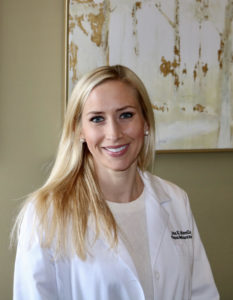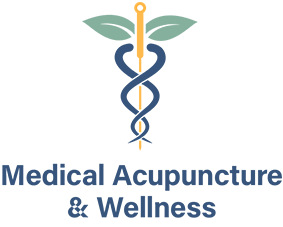Conditions Treated with Acupuncture
- Acute and chronic musculoskeletal pain including joint pain, low back pain, sciatica and neck pain
- Neuropathy
- Infertility
- Pregnancy support
- Anxiety and post-traumatic stress disorder (PTSD)
- Insomnia
- Allergies
- Respiratory disorders such as sinusitis, asthma and bronchitis
- Digestive disorders such as irritable bowel syndrome, reflux, gastritis, constipation, and diarrhea
- Pelvic pain
- Headaches / migraines
- Fibromyalgia
- Facial rejuvenation
- Promotion of health and well being
- Prevention of illness
About Us

Dr. Jan K. Morello attended LSU in Baton Rouge where she received her undergraduate degree in Nutrition with minors in Biology and Chemistry, graduating Cum Laude. She then attended LSU Medical School in New Orleans and completed her residency at LSUHSC in Physical Medicine and Rehabilitation where she served as Chief Resident her last year and is a board-certified physician. Her strong interest in holistic medicine and combining Eastern and Western medicine, led her to complete her acupuncture training through Harvard Medical School and is a licensed physician acupuncturist.
Fees and Payments
Initial Consultation
(includes full medical history, exam, and treatment session)
$210*
Follow-up Treatments
$165*
We accept cash, debit, and credit cards. Payment is due at time of service. Some insurances do cover the cost of acupuncture, but each policy is different and you should check your policy to confirm your benefits. We are happy to provide you with a receipt to file for reimbursement.
*effective 7/1/23
FAQ
*The following information is provided by the American Academy of Medical Acupuncture*
Acupuncture: What Is It?
Acupuncture is a method of encouraging the body to promote natural healing and to improve functioning. This is done by inserting needles and sometimes applying heat or electrical stimulation at very precise acupuncture points. This is NOT the same thing as dry needling.
How Does Acupuncture Work?
The classical Chinese explanation is that channels of energy run in regular patterns through the body and over its surface. These energy channels, called meridians, are like rivers flowing through the body to irrigate and nourish the tissues. An obstruction in the movement of these energy rivers is like a dam that backs up the flow in one part of the body and restricts it in others.
The meridians can be influenced by needling the acupuncture points; the acupuncture needles unblock the obstructions at the dams and reestablish the regular flow through the meridians. Acupuncture treatments can therefore help the body’s internal organs to correct imbalances in their digestion, absorption, and energy production activities, and in the circulation of their energy through the meridians.
The modern scientific explanation is that needling the acupuncture points stimulates the nervous system to release chemicals in the muscles, spinal cord, and brain. These chemicals will either change the experience of pain or they will trigger the release of other chemicals and hormones which influence the body’s own internal regulating system.
The improved energy and biochemical balance produced by acupuncture results in stimulating the body’s natural healing abilities and in promoting physical and emotional well-being.
What is Medical Acupuncture? Is it Different from Ordinary Acupuncture?
Acupuncture is a very old medical art and there are many approaches to learning and practicing it. Medical acupuncture is the term used to describe acupuncture performed by a doctor trained and licensed in Western medicine who has also had thorough training in acupuncture as a specialty practice.
How Many Treatments Will Be Needed?
The number of treatments needed differs from person to person. For complex or long-standing conditions, one or two treatments per week for several months may be recommended. For acute problems and for health maintenance, four to six sessions a year may be all that is necessary. This can be discussed with your acupuncturist for more recommendations.
Are There Any Side Effects to the Treatment?
Usually not. As energy is redirected in the body, internal chemicals and hormones are stimulated and healing begins to take place. Occasionally, the original symptoms worsen for a few days or other general changes in appetite, sleep, bowel or urination patterns, or emotional state may be triggered. These should not cause concern, as they are simply indications that the acupuncture is starting to work.
It is quite common with the first one or two treatments to have a sensation of deep relaxation or even mild disorientation immediately following the treatment. These pass within a short time and never require anything more than a bit of rest to overcome.
What are the Needles Like? Do They Hurt?
People experience acupuncture needling differently. Most patients feel only minimal pain as the needles are inserted; some feel no pain at all. Once the needles are in place, there is no pain felt.
Acupuncture needles are very thin and solid and are made from stainless steel. The point is smooth (not hollow with cutting edges like a hypodermic needle) and insertion through the skin is not as painful as injections or blood sampling. The risk of bruising and skin irritation is less than when using a hollow needle.
Because only disposable needles are used, there is no risk of infection from the treatments.
Does Acupuncture Really Work?
Yes. In the past 2000 years, more people have been successfully treated with acupuncture than with all other health modalities combined.
Acupuncture treatments can be given at the same time as other techniques are being used, such as conventional Western medicine, osteopathic or chiropractic adjustments, and homeopathic or naturopathic prescriptions.
It is important that your physician-acupuncturist know everything that you are doing so they can help get you the most benefit from all your treatments.
Do I Have to Believe in Acupuncture for it to Work?
No. Acupuncture is used successfully on cats, dogs, horses, and other animals. These animal patients do not understand or believe in the process that helps get them better. A positive attitude toward wellness may reinforce the effects of the treatment received, just as a negative attitude may hinder the effects of acupuncture or any other treatment. A neutral attitude will not block treatment results.
Do’s and Don’ts for the Day of Treatment
- Do not eat an unusually large meal immediately before or after your treatment
- Do not over-exercise, engage in sexual activity, or consume alcoholic beverages within 6 hours before or after treatment
- Plan your activities so that after the treatments you can get some rest or at least not have to be working at top performance
- Continue to take any prescription medicines as directed by your regular doctor. Substance abuse (drugs and alcohol) especially in the week prior to treatment, will seriously interfere with the effectiveness of the acupuncture treatments
- Remember to keep good mental or written notes of what your response is to treatment. This is important for your doctor to know so that the follow-up treatments can be designed to best help you and your problem
Contact
Jan Morello, M.D.
225-384-0239
Email Me
Medical Acupuncture & Wellness
4021 WE Heck Court, Building M-1
Baton Rouge, LA 70816
